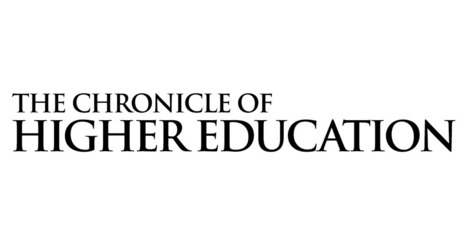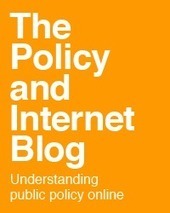The role of digital technologies in our lives, society and world is a topic of huge scrutiny, debate, controversy and opinion. Sometimes this noise can be as loud in education as anywhere else, and over the years much has been written and spoken about, in addition to much research in this area.
Get Started for FREE
Sign up with Facebook Sign up with X
I don't have a Facebook or a X account

 Your new post is loading... Your new post is loading...
 Your new post is loading... Your new post is loading...
Current selected tag: 'research'. Clear
In almost any school in the country today, you can find an app or program that claims to change education as we know it. Yet schools are littered with products that have not changed anything beyond teachers’ desktop screens. As researchers focusing on education technology, we see this often: interactive whiteboards covered in posters, desktop computers holding up plants, older devices that do not work with a newer assessment system. The list goes on. Our work at the nonprofit Education Development Center’s Center for Children and Technology focuses on how education technology can be used to support learning. The truth is edtech products that foster more learning than would happen in analogue settings can be difficult to find. When we get to see effective edtech products in practice, the view is exciting: We see kids engaged, teachers energized about the kinds of thinking their students are generating and strong learning outcomes that result from well-made
Neuroscience research shows that if you use electrical stimulation whilst teaching your staff, you’ll have better learners. You’ll modulate neuronal activity during training in order to enhance learning and high-level cognitive functions. The science has shown that you can use transcranial electrical stimulation (tES) to apply a small electrical current to the scalp and improve brain function.
In this session, we will present data from a University of Leeds ESRC Newton funded research grant conducted in collaboration with the University of Cape Town. We will contextualise the study in the existing literature around marketization, unbundling and digital technology, and give an overview of our research in South Africa. We will then focus on data collected from the UK higher education sector, through desk research and interviews with senior HE leaders. Our session will involve a presentation of our research data, including demonstration of novel interactive visualisations. Participants will be able to view these visualisations themselves during the session, and manipulate the data. We will pose several critical questions to the audience during the session, and invite responses digitally through a Padlet wall. At the end of the session, we will take questions from the audience about our research findings. The session strongly relates to the theme of critical perspectives of learning technology, as our research project is focussed on the benefits and challenges of the growth in unbundled online learning from universities, and the impact this is having on access, equality, flexibility, institutional mission and the changing nature of higher education.
Overview: This post compiles two previous blogs from hastac.org (Cathy Davidson) (originally published in June 2015 and October 2017) and concludes with a bibliography of scholarship on active learning (or "radical pedagogy"). Via Becky Roehrs 
Becky Roehrs's curator insight,
March 12, 2018 11:16 AM
Everything you wanted to know about active learning and more..from hastac.org plus 5 "inventory" tips
Over the past 15 years, there has been a concerted effort in education research to find out “what works” and to share these policies and practices with schools. Via Becky Roehrs 
Becky Roehrs's curator insight,
July 27, 2017 3:46 PM
What an excellent article-chock full of research proving what doesn't work in education, such as 1) Test prep doesn't help, may actually harm (do coursework instead) 2) Shuffling teachers around doesn't help students, either 3) learning styles don't exist
A new survey of faculty members and administrators by Tyton Partners asserts that the use of digital instructional technologies, which it endorses, is facing "headwinds" in adoption by colleges and universities. The study identifies faculty take-up of digital courseware and other tools as among the leading impediments to their spread -- but cites faculty members' lack of time and the training they receive from their institutions as far bigger cause than their outright opposition. Via juandoming, THE OFFICIAL ANDREASCY
Despite their surge in popularity, many harbor deep reservations about the quality of online courses. There are several possible reasons for this, but perhaps most fundamentally are serious concerns about the experience of online students.
"An annotated bibliography is an important part of any research document. Let's see how to create one with the help of Microsoft Word ..." © Via Leona Ungerer, Mark E. Deschaine, PhD
The Primordial soup of OER…
Think you know everything there is to know about smart studying? You may be surprised by some of the past year’s research. Below are 15 new insights on how to prep for exams and boost your academic achievements in general. Via Nik Peachey 
Character Minutes's curator insight,
June 29, 2016 11:33 AM
Some new data out there plus a good reminder of what we know will students!
This week we launched the Open Badge Network (OBN) portal. Open Badge Network is an Erasmus + project and strategic partnership which brings together organisations from across Europe to support the development of an Open Badge ecosystem, promoting the use of Open Badges to recognise non-formal and informal learning. Our mission is to provide a trusted…
This unit introduces you to the theoretical toolkit that is an essential part of engaging in educational enquiry. You will consider the types of theories and what their role is in the research... Via Mark E. Deschaine, PhD |
Choosing something that you are passionately interested in to research is a great first step on the road to successful academic writing but it can be difficult to keep the momentum going. Deborah Lupton explains how old-fashioned whiteboards and online networking go hand-in-hand, and offers advice for when it is time to just ‘make a start’ or go for a bike ride.
juan.castano1@utp.edu.co's curator insight,
November 23, 2020 10:50 PM
Organization is essential in every situational field in life, with this in mind, it is also crucial for the academic writing field, to keep our head focused on what is necessary to leave our thoughts on paper, organizing the pdfs where are somehow "patented" some ideas we have in mind or that we want to look for. also, think strategically to start writing, to connecting ideas effectively.
From
fno
Jamie McKenzie writes: "It is essential that schools teach students how to escape this stranglehold that Google creates. While helping visitors to find the information they need, Google effectively limits and narrows their searches - steering them toward the obvious and the conventional." Via Mary Reilley Clark 
Mary Reilley Clark's curator insight,
March 4, 2019 4:25 PM
This would be an excellent introduction to using keywords when researching. Have students read a short biography, then have them choose three or four words from the biography to add to their search. In Jamie's example, [Isadora Duncan AND critics] led to information that probably wouldn't show up on Biography.com! When I tried [George Washington AND critics], I also found richer resources.
The key to this is that students would need some basic knowledge in order to determine which keywords to use! Likewise, Jamie's "questions of import" are great, but I know if I asked students to use them, the first thing they would do is Google the exact question, then complain that nothing came up:)
I'd love to do this as a stand alone library lesson: a short introduction, then time to read a short online biography, choose the keywords to add, and discuss their findings. It certainly would help students become more thoughtful about their research!
For many of us, augmented reality is primarily associated with gaming and other forms of online entertainment. But it is also increasingly being used in scholarly publishing — in expected and unexpected ways. Springer Nature has been experimenting with this, and anyone who visited their booth at this year’s Frankfurt Book Fair (FBF) had the opportunity to experience the results firsthand. In this interview, their Senior Manager of Semantic Data, Markus Kaindl, and Head of Innovation, Martijn Roelandse, answer some of my questions about mixed realities, virtual reality, and augmented reality in scholarly publishing and tell us about some of their work in this area.
Last year I worked on finding a sustainable new home for the Open Access journal Research in Learning Technology. As part of my work for ALT, this was the third transition I have worked on since 2008 and during this period I have contributed to the thinking around Open Access publishing in Learning Technology, often through ALT’s contribution to initiatives such as the 2012/3 ‘Gold Open Access Project‘. This year I will be working with a new group set up by ALT to steer the future development of the journal:
There's been an infuriating log-jam between those who argue technology is a distraction at best and those who argue it is an extremely positive force. Via Becky Roehrs 
Becky Roehrs's curator insight,
February 5, 2018 11:47 AM
Once you get past the history of technology and computers in this article, the research found the "winners" were:
The "loser" was one-on-one computing..unless you do something educational with the computer, it's just another object taking up space..
The jury is still out on online learning..blended-learning wins, next face-to-face learning, but online learning is better than nothing (?) for those who have difficulty getting to an educational institution..hmmm interesting conclusions..
John Hattie proposes a theory to help educators understand why various teaching strategies work at different stages of learning. Via Tom D'Amico (@TDOttawa) , Dean J. Fusto 
Annaliese Mauchline's curator insight,
May 18, 2020 9:37 PM
An engaging read. While the majority of the topics this article discusses has been drilled into pre-service teachers' heads over and over, there is definitely nothing wrong with reading a synthesised refresher every once in awhile. Sometimes it can be all too easy to believe you know how to implement certain things, when instead you have unknowingly fallen into a pit of learning and teaching monotony.
Camilo Gonzalez Echeverry's curator insight,
May 19, 2020 8:59 AM
Language teaching presents us with a lot of tools to deliver our lessons but we will always be wondering whichever is the most appropriate for an specific class or student. This article presents some meta in the topic of strategy selection when it comes to language teaching.
Luisa Fernanda Giraldo 's curator insight,
September 28, 2020 3:45 PM
The strategies presented here allow students to become much more independent learners. Teachers should know when to apply each planned strategy and how to help students develop an understanding of that strategy. When teachers take into account the ability, willingness and emotion of students, learning strategies are effective.
The Politics of Open Knowledge about ‘copyright’ is required in order to teach a MOOC. This study shows that educators are not aware of the aspects of copyright when teaching a MOOC. Acquiring that knowledge is important for educators to do a more effective job. The participants in this study used more informal than formal ways of learning about copyright. Aspects of theoretical knowledge were not as evident in interviewees’ learning, extending the process of preparing a MOOC and requiring them to work outside normal working hours. Theoretical knowledge would be equally important to acquire practical knowledge more effectively. These findings suggest people should be provided with training about potential legal issues before producing video, image and text content. This training will accelerate the MOOC process; institutions and educational platforms will be benefited too.
More than two out of three middle-schoolers couldn’t see any valid reason to mistrust a post written by a bank executive arguing that young adults need more financial-planning help. And nearly four in 10 high-school students believed, based on the headline, that a photo of deformed daisies on a photo-sharing site provided strong evidence of toxic conditions near the Fukushima Daiichi nuclear plant in Japan, even though no source or location was given for the photo. Via Nik Peachey
The Digitally Literate research project seeks to document instructional use of digital texts & tools in global classrooms.
Reading becomes easier with experience, but it is up to each scientist to identify the techniques that work best for them. (...) - Science, by Elisabeth Pain, Mar. 21, 2016 Via ESR_Info, Mark E. Deschaine, PhD
This project explores the ethical and social implications of the growing use of data in education via a systematic review of policy and practice in the UK, USA and Singapore. |







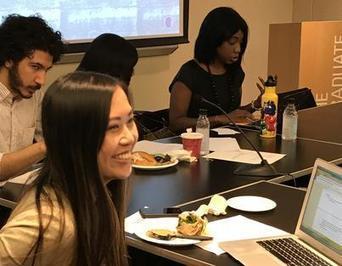

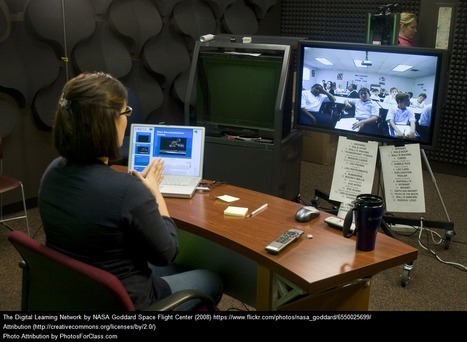


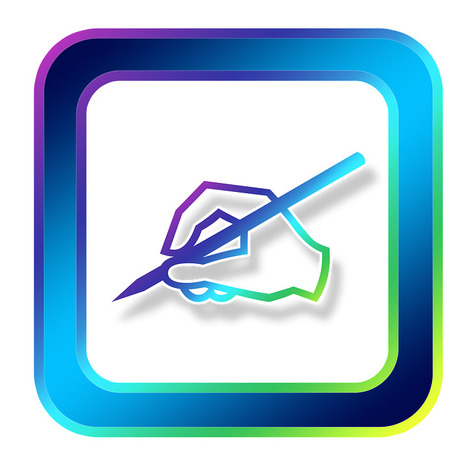



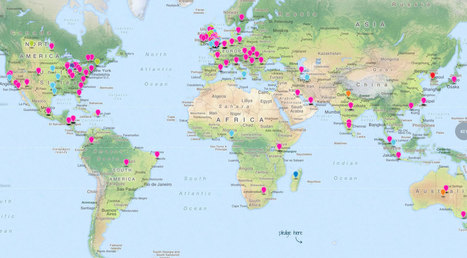
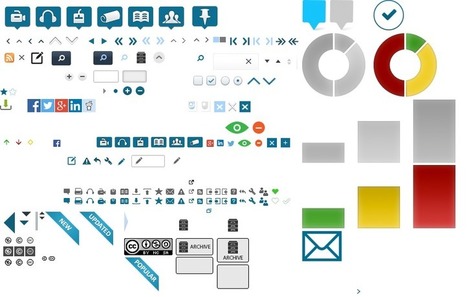





![How do educators of Massive Open Online Courses find out about Copyright? [1490] | Information and digital literacy in education via the digital path | Scoop.it](https://img.scoop.it/qAIJ-pBMJzQZLbQMuQFOPTl72eJkfbmt4t8yenImKBVvK0kTmF0xjctABnaLJIm9)


